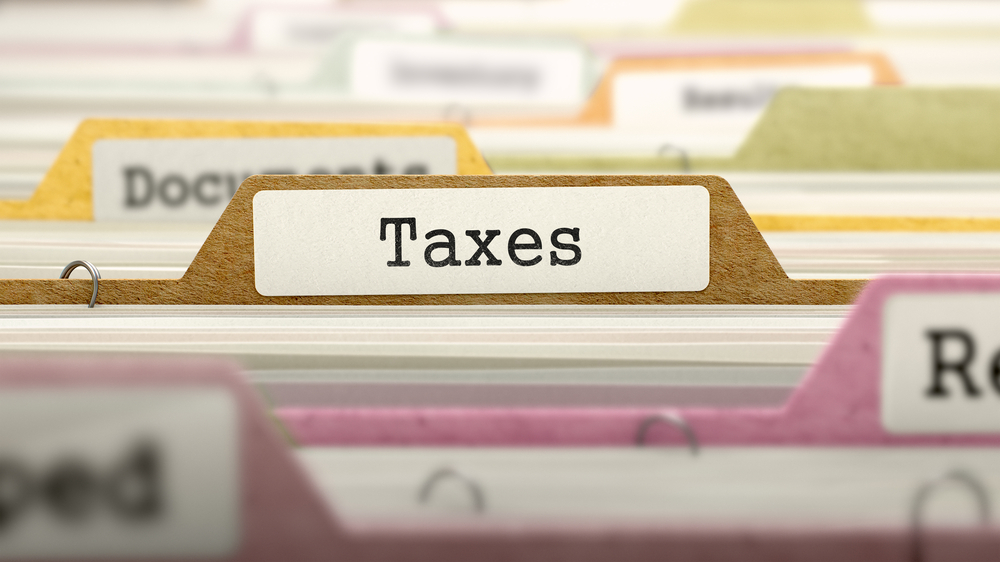6 min read

That’s quite a headline, right? Well, it’s true. There are non-QM loans available where self-employed workers can qualify with no tax returns. How is such a thing possible? I’m glad you asked. There’s an alternative to conventional loans called bank statement loans that use 12-24 months of bank statements as the cornerstone of a borrower’s application. Let’s discuss.
Maybe you are self-employed and run a successful business. You maximize your legal deductions, and you don’t have much income to show on your W2. This is a common scenario for small business owners, and this strategy helps them when it comes to accounting. This becomes a challenge when that small business owner is looking for a mortgage. When it comes time to apply for a conventional loan from a big bank (like a 30-year fixed), the lender is going to want to see tax returns to determine eligibility. Uh oh. The borrower we just described isn’t going to have a tax return that will show enough income to support the loan they are looking for. Enter the bank statement loan.
With a bank statement loan, lenders will start with 12-24 months of bank statements. These bank statements are used to calculate an average monthly income. This is done to help normalize irregularities in deposits when you are self-employed. Maybe you run a seasonal business and make most of your money during certain months of the year. Maybe you work on commission only. Whatever the case may be, the bank statements help the lender determine how much income you bring in over a long period of time (12-24 months). This helps the bank figure out how much you can borrow and your ability to repay the loan.

Once the lender has the bank statements and determines an average monthly income, they can also use that information to figure out a Debt-to-income (DTI) ratio. A Debt-to-income ratio can seem complex, but it’s a percentage that shows the amount of monthly expenses vs. income. Lenders typically want this under 50%, but the smaller the percentage in a DTI ratio, the better. If you’d like more information on how a DTI is calculated, check out this blog post.
Lenders will also look at the borrower’s credit score. It’s common to think that you have to have an excellent credit score to qualify for a loan, and sometimes this is true. With a bank statement loan, lenders will look at credit scores at 580 or higher. Unlike the DTI, a higher number is better when it comes to a credit score, but don’t be discouraged if you have a credit score that isn’t excellent.
The last important piece of information I want to share on a bank statement loan is about the down payment. Expect a down payment in the 10-20% range for a bank statement loan. However, there are a few factors that may determine if the down payment will be closer to 10% or 20%. The factors are what has been discussed above. Things like your credit score or DTI ratio will determine how much of a down payment will be needed for your loan.
Bank statement loans are a strong alternative if you are self-employed or run a small business. This blog post hopefully serves as a starting point for information on this type of loan, but it’s not exhaustive and won’t account for the details of your specific situation. That’s why it’s important to reach out to an expert, like someone from Truss Financial Group. The team at Truss will help you learn about how a bank statement loan might be a good choice for you. Give them a call if you’re interested in learning more.
Expanding on the topic of bank statement loans, it's essential to delve deeper into the nuances and benefits of this financial solution, especially for self-employed individuals and small business owners.
Understanding Bank Statement Loans Further
Flexibility in Documentation
One of the most significant advantages of bank statement loans is the flexibility in documentation. Traditional loans require a plethora of paperwork, including tax returns, W2s, and pay stubs. However, for many self-employed individuals, these documents don't accurately reflect their financial stability or earning potential. Bank statement loans circumvent this issue by focusing on real-time financial data, offering a more realistic picture of a borrower's financial health.
Tailored for the Self-Employed
Bank statement loans are specifically tailored for self-employed individuals. These loans recognize the unique financial situations of entrepreneurs, freelancers, and small business owners. By using bank statements, lenders can understand the cash flow of the business, accounting for the ebb and flow typical in many self-employed scenarios.

Higher Loan Amounts
Interestingly, self-employed individuals might qualify for higher loan amounts with bank statement loans compared to traditional loans. Since the assessment is based on cash flow, if your business has healthy and consistent revenue, you could be eligible for a more substantial loan.
Speed of Processing
The processing time for bank statement loans can be quicker than traditional mortgages. Without the need for extensive tax documentation and W2 forms, the underwriting process can be streamlined, leading to faster loan approvals.
Potential Downsides
Interest Rates
It's important to note that bank statement loans might come with higher interest rates compared to conventional loans. The perceived risk is higher for lenders, as the assessment is based on bank statements rather than tax returns.
Proof of Business
You will need to prove that you have been in business for a minimum period, usually two years. This is done to ensure that your income is stable and likely to continue.
Varied Lender Policies
Different lenders have different policies and requirements for bank statement loans. It's crucial to shop around and understand the terms and conditions of different lenders to find the best deal for your situation.
FAQs on Bank Statement Loans
Q1: What is a bank statement loan?
A1: A bank statement loan is a type of mortgage for self-employed individuals where lenders use 12-24 months of bank statements to determine income instead of traditional tax documents.
Q2: Who can benefit from a bank statement loan?
A2: Self-employed individuals, freelancers, and small business owners who may not have traditional income documentation but have a healthy cash flow can benefit from bank statement loans.
Q3: Are bank statement loans more expensive than traditional loans?
A3: They can be. Bank statement loans often have higher interest rates due to the perceived increased risk for lenders.
Q4: What is the typical down payment for a bank statement loan?
A4: The down payment for a bank statement loan usually ranges between 10-20%, depending on factors like credit score and DTI ratio.
Q5: How long does it take to process a bank statement loan?
A5: The processing time can be quicker than traditional loans due to less required documentation, but it varies by lender.
Q6: Can I qualify for a bank statement loan with a low credit score?
A6: Yes, it's possible. Some lenders accept credit scores as low as 580, but terms and conditions may vary.
Q7: Is a bank statement loan the same as a no-doc loan?
A7: No, they are different. Bank statement loans require bank statements as proof of income, whereas no-doc loans require minimal to no income documentation.
In conclusion, bank statement loans offer a viable alternative for those who might not qualify for traditional loans due to their unique financial situations. While they come with their own set of requirements and potential drawbacks, they can be a powerful tool for self-employed individuals seeking to invest in property. As always, it's advisable to consult with financial experts to understand the best options for your specific circumstances.
Table of Content

Take your pick of loans
Experience a clear, stress-free loan process with personalized service and expert guidance.
Get a quote


